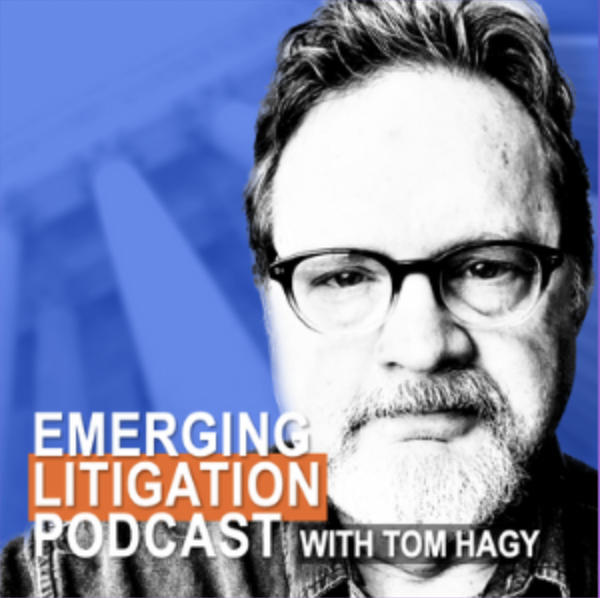Interested in contributing an article? Email us at Editor@LitigationConferences.com.
More PFAS Posts
Trump’s rollback of draft PFAS regulation means uncertain future for ‘forever chemicals’ torts
By Justin Ward
Despite regulatory uncertainty at the federal level, PFAS litigation is gaining momentum, with lawsuits expanding beyond chemical companies to target manufacturers that market PFAS-containing products as ‘safe’ or ‘natural.
The proposed rule would have expanded the water treatment guidelines for poly-fluoroalkyl substances, or PFAS, the Biden Administration enacted last April for drinking water to also regulate those chemicals in industrial wastewater. The move was in response to growing alarm about the potential public health threat posed by PFAS chemicals, which are hazardous at microscopic levels and break down slowly in the environment and the human body.
Commonly found in non-stick cookware, flame-resistant clothing and fire foam, PFAS describes a class of chemicals resistant to grease, oil, heat and water. Biden’s presidency saw thousands of lawsuits against chemical companies, manufacturers that use PFAS in products, and water treatment facilities, with settlements to date totaling more than $18 billion.
While it’s still unclear what Trump’s decision to return the draft rule to the EPA means, environmentalists worry it could signal broader deregulation of water treatment and chemical manufacturing. Trump’s EPA took some action on PFAS in his first term, but he has since pledged to eliminate 10 regulations for every one implemented. Still, an environmental lawyer in the EPA told Newsweek that it’s common for incoming administrations to put pending regulations on hold and that the regulatory status quo of PFAS guidelines remains intact. That could change depending on the administration’s actions in the coming year.
John Gardella of CMBG3 specializes in PFAS and environmental law told HB he believes the drinking water MCLs “will be walked back but not eliminated – specifically, the 4ppt for PFOA and PFOS will be increased, while the Hazard Index for the other PFAS will be eliminated entirely.”
“With respect to CERCLA,” Gardella told us, “the litigation is now stayed pursuant to efforts by the administration, so they have a couple of months to try to negotiate a CERCLA exemption for passive receivers. If that is successful, it will be touted as a win by the current administration. If the exemption negotiations fail, I believe the administration’s interest will be in eliminating the PFOA and PFOS hazardous substance designation.”
If Trump does implement the proposed regulations, some analysts predict that the final rules will be notably different from the draft and their implementation will be significantly delayed. The proposed regulations were in their final stages and were only the beginning of a larger push to regulate industrial PFAS discharge. Placing Biden’s rules– affecting only 13 facilities – on hold would slow down the process of addressing PFAS at an estimated 120,000 sites where people are potentially exposed.
The Trump Administration could also revise EPA regulations passed in 2024, designating two kinds of PFAS chemicals as “hazardous substances,” which could have a trickle-down effect on states and municipal water treatment plants.
Some environmentalists have expressed cautious optimism about what Trump’s appointment of former New York representative Lee Zeldin to head the EPA might mean for the future of PFAS regulation. As a congressman, Zeldin co-founded PFAS Task Force and voted in favor of the PFAS Action Act of 2021. At the same time, Zeldin shares Trump’s zeal for deregulation and slashing agency budgets.
Despite the question marks lingering over the regulatory environment, the outlook for “forever chemicals” litigation still looks bullish, according to legal analysts. The traditional targets of PFAS torts were chemical companies and water treatment plants, but now more consumer class action lawsuits are aimed at manufacturers who advertised products containing PFAS as “safe” or “natural.”
Though federal regulation remains in limbo, filings are proceeding under state laws at a steady clip. Eleven states have passed PFAS water regulations almost identical to the proposed rules while others have passed regulations governing the use of PFAS in manufactured products.
Edited by Tom Hagy and Sarah Gannon.


